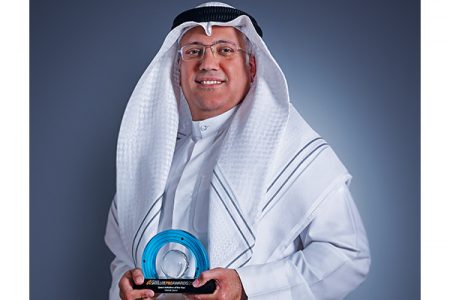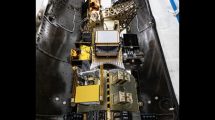
Orbital Space, a private entity involved in the promotion of space education and technologies in Kuwait, has announced that the launch for its CubeSat project has been fast-tracked to February 2021. QMR-KWT is a 1U CubeSat intended to be Kuwait’s first nanosatellite. The name “QMR-KWT” means “Moon of Kuwait”, translated from Arabic.
Orbital Space has partnered with Bulgarian satellite manufacturer EnduroSat to develop the bus system for its CubeSat. They, in turn, contracted US company Momentus to deliver the spacecraft to its low earth orbit. Momentus is planning to launch several satellite missions in February 2021 on the second Vigoride demo mission onboard a SpaceX Falcon 9 rocket.
Commenting on the developments, Orbital Space founder and CEO Bassam Alfeeli told SatelliteProME: “We have reached a major milestone, which is securing a launch opportunity. We were aiming to develop a CubeSat in time for a 2022 launch, which is the typical timeframe for such a project. For a country that does not have a national satellite registry like Kuwait, we anticipated an even longer time frame to secure approvals and the necessary licenses. But thanks to our partnership with EnduroSat, we have now secured the launch window.”
Alfeeli added: “EnduroSat is assisting Orbital Space in building its capabilities and in gaining the knowhow to plan, build, and operate CubeSat missions. Right now, we are gearing up to integrate the different subsystems of the satellite. As a startup, we are excited to work with other startups to meet our mutual objectives. Once in space, QMR-KWT will be the outcome of efforts from all young companies including Orbital Space, EnduroSat, Momentus, and even SpaceX, which is less than 20 years old.
The CubeSat project was initiated by Alfeeli and his team to create a platform for a community of space enthusiasts in Kuwait. They felt the need for a hub where people could come together and work with their ideas.
The educational mission of QMR-KWT will allow students from around the world to learn more about satellite communications, and also test and develop new software solutions by writing software code to be uploaded and executed on one of the satellite’s onboard computers in an out-of-this-world opportunity for students to Code in Space.
QMR-KWT has been conceived to empower students to contribute to the advancement of satellite communication technology while also preparing future professionals to operate the next generation of communication satellites.












Add Comment